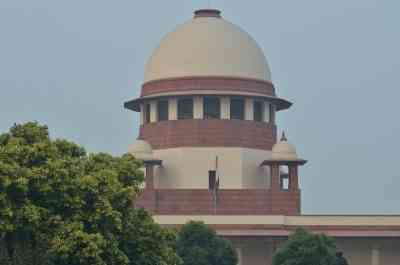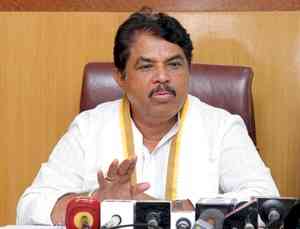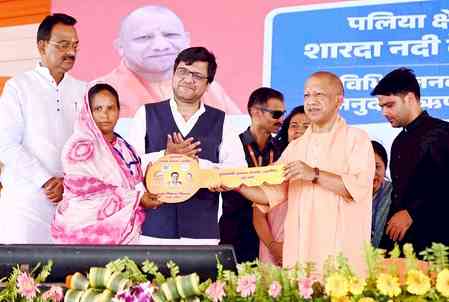Collegium discussions can't be put out in public domain through RTI, says SC
The Supreme Court on Friday said only final decisions, and not the discussions of collegium meetings, could be made public under the Right to Information (RTI) Act.

New Delhi, Dec 9 (IANS) The Supreme Court on Friday said only final decisions, and not the discussions of collegium meetings, could be made public under the Right to Information (RTI) Act.
A bench of Justices M.R. Shah and C.T. Ravikumar said: "Only after the final resolution is drawn and signed by the members of the collegium, which is always after completing the due procedure and the process of discussion/deliberations and consultation, the same required to be published on the Supreme Court website as per resolution dated October 3, 2017."
The bench dismissed a plea by activist Anjali Bharadwaj seeking a direction to disclose the details of a 2018 collegium meeting, in which the decisions were taken to elevate two high court chief justices to the apex court.
The bench said during the consultation if some discussion takes place but no final decision is taken and no resolution is drawn, it cannot be said that any final decision is taken by the collegium. It added that collegium is a multi-member body whose decision embodies in the resolution that may be formally drawn up and signed.
It said when in the subsequent resolution dated January 10, 2019, it is specifically mentioned that in the earlier meeting held on December 12, 2018, though some decisions were taken but ultimately the consultation was not completed and concluded and therefore, the matter/agenda items was/were adjourned.
Advocate Prashant Bhushan, who represented the petitioner, argued that the appointment of judges in the apex court and the high court should be made in a transparent manner in order to generate public trust.
The top court said discussions within the collegium system cannot be put in public domain through RTI, as they do not assume the character of a final decision.
"Therefore, as no final decision was taken which culminated into a final resolution drawn and signed by all the members of the Collegium, the same was not required to be disclosed in the public domain and that too under the RTI Act. Whatever is discussed shall not be in the public domain. As per the resolution dated 03.10.2017 only the final resolution and the final decision is required to be uploaded on the Supreme Court's website," said Justice Shah, who authored the judgment on behalf of the bench.
The top court said the plea is based on comments by an ex-collegium member (Justice Madan B. Lokur) on a decision to elevate two high court chief justices. Bhushan said Justice Lokur, who was part of the Supreme Court collegium in 2018, had said that one of the decisions, should have been uploaded on the Supreme Court website.
"Now so far as the reliance placed upon some of the news item/article published in the media in which views of one of the members of the collegium is noted, is concerned, we do not want to comment upon the same. The subsequent resolution dated 10.01.2019 is very clear in which it is specifically stated that in the earlier meeting held on 12.12.2018, the process for consultation was not over and remained unconcluded," said the bench.
The petitioner had also sought a direction to get the agenda, minutes, and resolution of the apex court collegium meeting of December 12, 2018, under the RTI Act.


 IANS
IANS 










